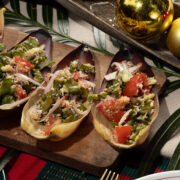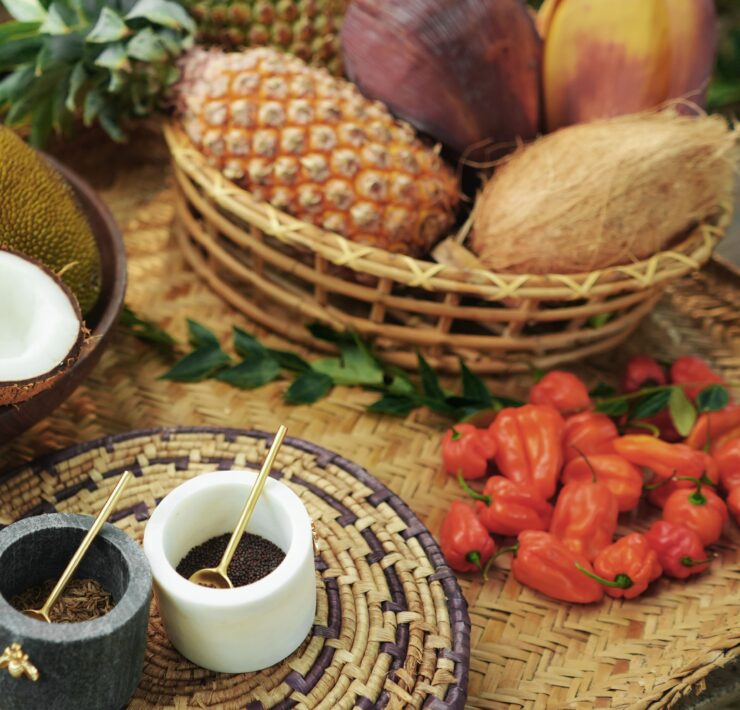Coconut Oil: The Comeback Kid of the Pantry
Remember when coconut oil was the health villain everyone loved to hate? For years, it seemed like this tropical staple—once revered for its versatility in kitchens and beauty routines across the globe—couldn’t catch a break. Nutritionists shunned it, doctors warned against it, and we dutifully swapped it out for bottles of heart-healthy vegetable oil. But these days, if you take a peek inside any well-stocked pantry or beauty cabinet, coconut oil is back. So, how did this maligned ingredient go from culinary outcast to modern-day essential?
From Hero to Zero: The Fall of Coconut Oil
Let’s rewind. For centuries, coconut oil has been the go-to cooking fat in tropical regions like Southeast Asia, South India, and the Pacific Islands. Families used it for everything from frying fish to moisturizing their skin, and in Ayurvedic medicine, it was practically a miracle worker. Not only did it smell like a tropical vacation, but it had cooling properties, promoted digestion, and boosted immunity. This wasn’t just a food—it was a lifestyle.
Then the Western world got involved. In the mid-20th century, saturated fats took the fall for rising heart disease rates, and coconut oil—being rich in these fats—was promptly demonized. Dietitians lumped it into the same category as butter and lard, foods that were increasingly linked to clogged arteries and cardiovascular issues. Enter the age of vegetable oils: soybean, corn, and canola. Labeled as heart-friendly alternatives, these oils became the stars of Western kitchens, and coconut oil was banished to the back of the pantry, its tropical allure no match for the slick marketing campaigns promoting these new heroes of the health world.
It wasn’t just about health, though. The shift also reflected a broader preference for locally grown, Western products. Coconut oil, with its far-flung origins and association with “exotic” cuisine, didn’t fit into the neat narrative of modern food trends in Europe and North America.
The Great Fat Mix-Up
But here’s where things got a little mixed up—literally. The anti-saturated fat crusade of the 60s and 70s didn’t account for the fact that not all fats are created equal. Coconut oil is high in saturated fat, yes, but it’s a different kind of fat—one made up of medium-chain triglycerides (MCTs), which are metabolized differently than the long-chain fats found in butter or fatty meats. MCTs are broken down quickly by the liver, meaning they’re more likely to be burned for energy rather than stored as fat. That’s a crucial distinction, but it got lost in the rush to label all fats as the enemy.
For years, coconut oil languished in culinary purgatory while vegetable oils reigned supreme. But as more nuanced research emerged, the conversation around fats began to change. Suddenly, MCTs were being hailed as metabolism boosters, coconut oil’s ability to raise good cholesterol (HDL) was noted, and its anti-inflammatory, antimicrobial properties started getting serious attention.
Cue the coconut oil comeback.
The Coconut Renaissance
In recent years, coconut oil has clawed its way back to the top. Part of that is thanks to the rise of wellness culture, where anything natural, plant-based, or minimally processed is celebrated like a superfood. And coconut oil ticks all those boxes. Cold-pressed, organic coconut oil is now praised for its health benefits—and not just by fringe wellness influencers. Keto devotees are using it to fuel their high-fat, low-carb lifestyles. Paleo eaters are drizzling it over everything. Even beauty brands have jumped on board, with coconut oil showing up in hair masks, skin creams, and lip balms.
The fact that it’s incredibly versatile doesn’t hurt, either. You can cook with it, bake with it, blend it into smoothies, or drizzle it over roasted veggies. Its high smoke point makes it great for sautéing, while its natural sweetness adds a tropical vibe to baked goods. And let’s be honest: nothing smells quite as good as frying onions in coconut oil.
A Shift in Perspective: Reclaiming Traditional Wisdom
Part of what makes coconut oil’s resurgence so sweet (besides the flavor) is that it’s also a victory for traditional food knowledge. For years, Western food systems pushed ingredients like coconut oil aside, favoring what was more familiar, more processed, and more profitable. But as more people look to heritage cooking and ancestral diets for guidance, coconut oil is being reclaimed not just as a trendy health food but as a symbol of returning to what’s natural and time-tested.
In many ways, the revival of coconut oil isn’t just about nutrition science catching up—it’s about rethinking what we consider “modern” food wisdom. Cultures that have been using coconut oil for generations knew it had value long before Western science stepped in. And now, as we seek alternatives to processed vegetable oils and over-refined products, the appeal of a simple, unrefined oil like coconut is undeniable.
The Modern-Day Pantry Staple
So, should you be using coconut oil? Absolutely. Whether you’re looking to boost your morning smoothie, find a cleaner alternative to your moisturizer, or add a tropical twist to your weeknight dinner, coconut oil has earned its place in the modern kitchen. Just like anything, moderation is key, and it’s always best to stick with high-quality, virgin, cold-pressed varieties. But the days of fearing coconut oil are over—it’s time to embrace it.
From heart health to hair care, this oil has proven it’s far more than just a trendy fad. It’s an ingredient with deep roots in cultures that have always understood its power, and now, the rest of the world is finally catching on. So go ahead, crack open that jar, and bring a little sunshine into your life—coconut oil is back, and this time, it’s here to stay.
What's Your Reaction?
Surekha Yadav is a freelance journalist and tropical ingredient enthusiast who lives between Singapore and Colombo. Her dream is to be a World Banana Forum correspondent. She is also the co-founder of Jungle Kitchen.
















